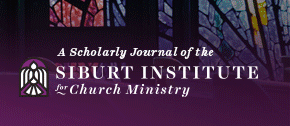Abstract
This study investigates a process for developing local church members to become leaders, people of spiritual influence. Organic, reproducible leadership development in a church located in a mission field is crucial for churches to survive and thrive.
Applying Robert Clinton’s “Leadership Emergence Theory,” where spiritual influence is a function of time, process items within life, and our responses allowed church members to discover and use their spiritual influence to bless others. We intentionally explored the theological concepts of discipleship, providence, giftedness, and community as being foundational in developing leaders. In addition, each person applied “Leadership Emergence Theory” to their own life by writing and sharing their life narrative.
Evaluating the effects of the intervention over a period of three years and drawing conclusions to enhance future ministerial practice made the methodology a case study in leadership emergence within a mature mid-sized church.
The practical application of “Leadership Emergence Theory” opened the participants to the providential work of God within the community of God and their own lives. They discovered they have a story worth sharing and that they are part of God’s story. Often the first year of processing one’s life was painful but during the second year, participants embraced the painful moments of life as opportunities for ministry through enhanced spiritual influence. New ministries and leaders were launched within the local church based on God’s transformation of participants, not a predetermined outcome. Developing deep trust within the groups provided a framework for vulnerability and transformation. Using this approach to develop spiritual leaders—people of spiritual influence—continues to develop leaders in the local church and has the potential to work within other congregations.
Creative Commons License

This work is licensed under a Creative Commons Attribution 4.0 License.
Recommended Citation
Laird, Scott
(2021)
"An Adaptive Change Project in Developing Leaders,"
Discernment: Theology and the Practice of Ministry: Vol. 7:
Iss.
2, Article 3.
Available at:
https://digitalcommons.acu.edu/discernment/vol7/iss2/3

